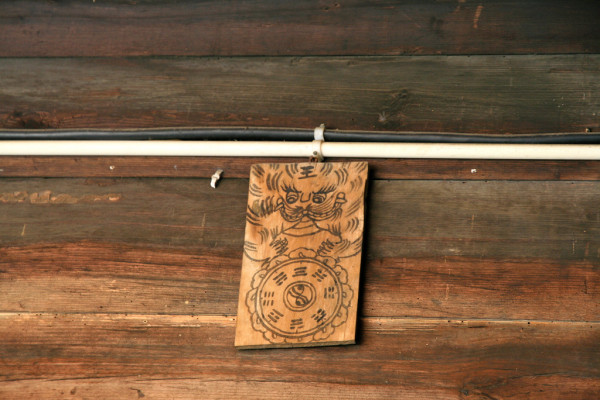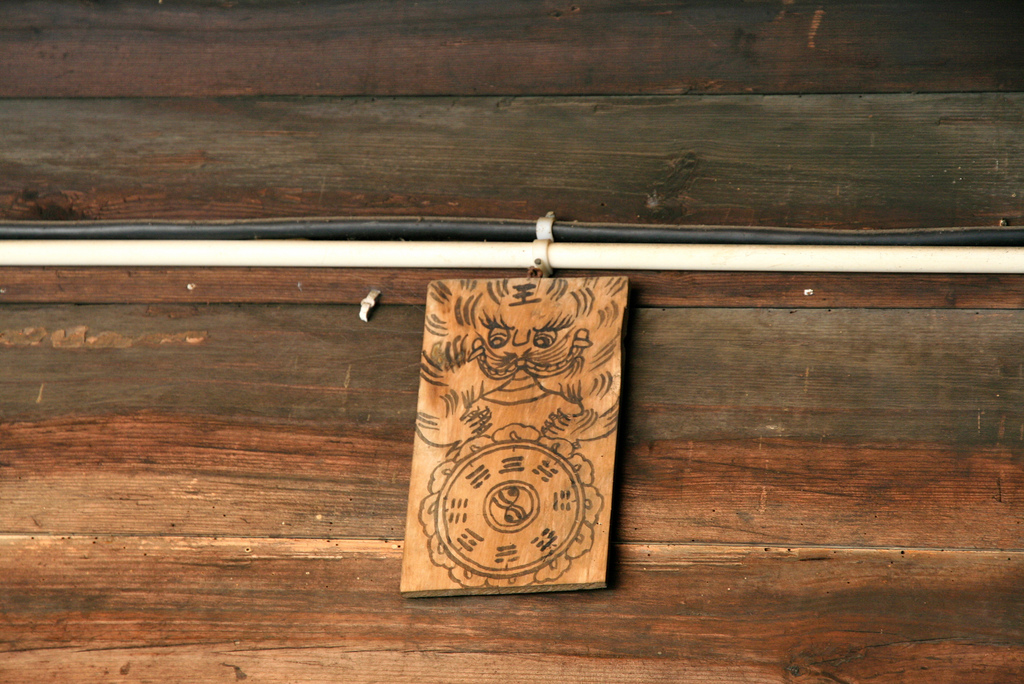 Superstition and fortune telling has a long history in Chinese culture. I’ve written about some of my family’s own experiences with a fortune teller in The Chopstick Story with regard to how an aunt and and an uncle of mine were given away for adoption due to the predictions of a fortune teller. Some have questioned how my grandmother could have so strongly believed the predictions of a fortune teller to give away her own children, and I’m often left wondering the same thing. But I also know my own parents were strong believers in Chinese superstition and various members of my own family practice their own fortune telling, like numerology and the I-Ching.
Superstition and fortune telling has a long history in Chinese culture. I’ve written about some of my family’s own experiences with a fortune teller in The Chopstick Story with regard to how an aunt and and an uncle of mine were given away for adoption due to the predictions of a fortune teller. Some have questioned how my grandmother could have so strongly believed the predictions of a fortune teller to give away her own children, and I’m often left wondering the same thing. But I also know my own parents were strong believers in Chinese superstition and various members of my own family practice their own fortune telling, like numerology and the I-Ching.
Researchers in China have recently discovered that back in the Shang Dynasty (1600 BC to 1046 BC), fortune tellers were able to use tricks to pre-determine the outcome of their divinations. Chinese fortune tellers used to burn turtle shells and cattle bones, and based on the crack patterns that emerged during the burning process, predict the future. It turns out you can control the appearance of the crack patterns based on saw and cut marks in the bones or shells, thus creating your own predictable outcome.
Why would this be so important?
Apparently the Emperor was the leader of the diviners. From the news report on this discovery:
“During the Shang Dynasty, the emperor was the leader of the diviners. Thus, it is possible that he controlled public opinion via oracle bone divination,” said Hou Yanfeng, a researcher at an archaeology laboratory under the Henan Provincial Administration of Cultural Heritage.Ma Xiaolin, deputy director of the administration, said researchers made replicas of oracle bones excavated from central Henan and carried out a month’s worth of experiments to figure out precisely how they were created and how they were used in divination.”Based on saw, cut and burn marks on 185 fragments of oracle bones and shells, our researchers gained insight into the manufacturing techniques that were used to make oracle bones during the late Shang period,” Ma said. The experiments have been recognized by experts from the U.S., France and Spain, Ma said.
Going back to the story about my grandmother, you may have been wondering what a fortune teller would have to gain by telling my grandmother to give up her children or face destruction of her family. It was all about money of course. The fortune teller could fix the problem if my grandmother paid her, but of course my family was not wealthy and could not afford the “fix”, so instead my grandmother gave up a son and a daughter to two other families to be raised. I like to believe that I’m a little more rational than my grandmother, but I also know that I was infused with the belief systems of my parents, so even though I know it’s silly, I don’t go anywhere without my jade necklace (for good luck), favor the color red (also for good luck), and avoid the number 4 (bad luck).
My uncle also read my future (around 15 years ago), in a similar fashion to the fortune teller that read the futures of my fated aunt and uncle. My fortune though was not so dire. If anything, my fortune was rather mediocre. My uncle predicted I would live a decent amount of time (not long, not short), I would be comfortable in my life (never have too much or too little), I would not achieve fame, nor wealth, but I would always be okay. I would have a stretch of minor difficulty when I turned 40, but nothing that I couldn’t handle. And all of those things have turned out to be true. The question though, is whether knowing your fortune changes your behavior so that essentially you cause your fortune to come true? Have I been less ambitious because I know I have nothing to prove, no startling discoveries, no need to change the world? Or do you do something drastic to change your future, so the prediction doesn’t come true? If you believe there’s nothing behind the smoke and mirrors, then maybe it doesn’t matter.








